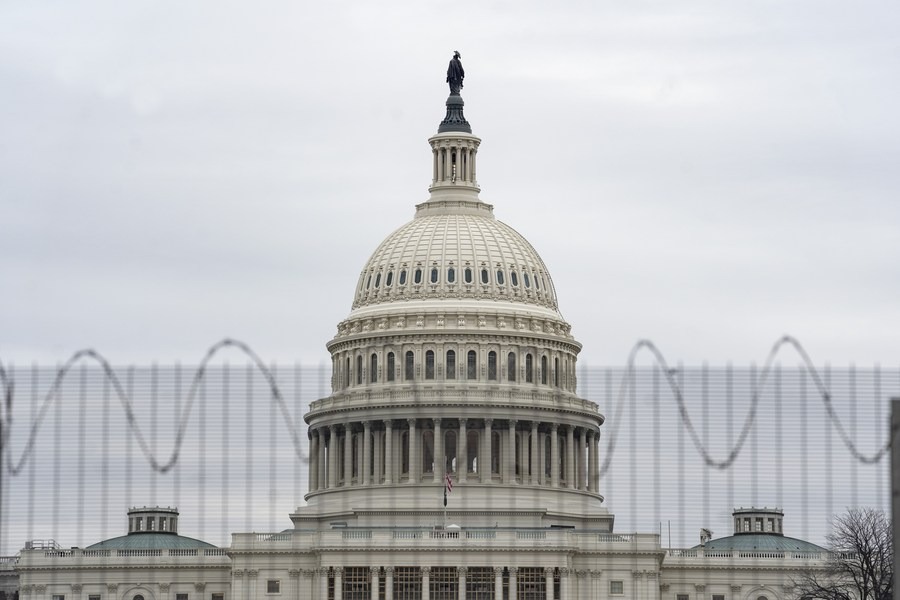Shared interest in stability
US strategic approach toward China does not need to lead to conflict


The United States' strategic approach to China is undergoing a fundamental change-from engaging with China to pursuing a strategy of competition and confrontation. This shift is partly due to China's rapid rise and growing overall national strength, and partly attributable to the changes in the political thinking in the US.
There are three basic facts to be understood when trying to predict the trend of Sino-US relations.
First, China and the US have a common interest in maintaining the stability of the global order. Today's world is no longer the divided one of the Cold War era. The biggest contribution the two countries can make to maintaining the global order is to join hands in promoting global governance. In a phone call with the US President Joe Biden on the eve of Chinese Lunar New Year, President Xi Jinping said that cooperation is the only correct choice for China and the US, and confrontation between them would be a disaster for both countries and the world.
Second, China and the US have no choice but to coexist in the global arena. China and the US, as the world's two largest economies, belong to different civilizations and have different political systems. According to the Chinese philosophy of equilibrium and dialectics, differences are the foundation for harmonious coexistence based on mutual complementation. China and the US should explore a sustainable way of coexistence by seeking common interests while respecting differences.
Third, the US will remain the most powerful country in the world for quite a long time. After World War II, US power reached its peak. Capitalizing on its unparalleled strength, the US established a hegemonic global order and an international system in its favor. But in the past few decades, the relative strength and status of the US have been declining. China's rapid development has caught the world's attention and other emerging economies have also made remarkable achievements. The US still enjoys a dominant say in world affairs thanks to its economic clout, military strength, technological prowess, and the US dollar's status as the global reserve currency. The end of its hegemony does not mean it will no longer be the world's most powerful country.
Based on these, there are several aspects that can be identified in the development of Sino-US relations.
The first is long-standing strategic competition. Sino-US relations feature both cooperation and competition, in which the aspect of competition is more complex and prominent. That will not change because of any single event. The change in the US' strategic approach to China is supported by a high-level domestic consensus. Initiated by the Donald Trump administration, the political thinking that underscores competition will last for a long time. To achieve its strategic end, the US will ramp up efforts to rally support from its allies, and probably challenge China's bottom lines on its national interests such as territorial and sovereignty integrity. In the global arena, the US will squeeze China's institutional power and seek to suppress its voice. The competition between the two sides will inevitably become fiercer. A sustained strategic competition has become the new normal for Sino-US relations.
The second is the two countries must manage crises properly. With strategic competition now the new normal for their ties, crises will undoubtedly occur from time to time. No matter who is the president of the US, it will not change the fundamentals of the Sino-US relations. Under this circumstance, it is critical that the two countries properly manage any crisis that erupts and prevent it from escalating into violent conflict. It is reasonable to assume that neither of the two sides wishes to resort to violence as it would be disastrous for both. In the context of strategic distrust and competition, how to avoid a crisis from spiraling out of control will be a priority for the two countries in the coming years.
The third is they cooperate in global governance. Global governance is the main area in which China and the US can work together. The relations between China and the US are not like that between the Soviet Union and the US during the Cold War, and the world will not plunge into a second Cold War since the two sides have an interest in maintaining the stability of the global order. Although there is competition between the two countries in global governance, such as public health and climate change, this is nevertheless the areas where the two sides have the best opportunity to cooperate with each other.
Sino-US ties are the most important bilateral relations in the world and have a bearing on the stability of the global order and the course of international relations. That the bilateral ties have plummeted to their lowest point in years is largely attributable to the shift in the US' strategic approach to China. The return of power politics, the anxiety over a rising China, the exclusiveness of national interests and the revival of geopolitics all reflect the change in the US' strategic thinking, which directly affects its actions in the global arena, including its redefining of the Sino-US relationship.
The strategic competition between China and the US will last for a long time. Nevertheless, the two countries have reasons to seek coexistence and collaboration in the context of strategic competition. The basic common interest of the two sides is to maintain the stability of the global order. Therefore, it is expected that the two sides can reasonably manage any crises that emerge, and that they will seek opportunities for cooperation in areas of global governance which are less sensitive and where a consensus is easier to reach. It is a rational choice for the two sides to explore a way of peaceful coexistence against the backdrop of competition. But wisdom and arduous political efforts will be needed from both nations.
The author is a professor and former president of China Foreign Affairs University. The author contributed this article to China Watch, a think tank powered by China Daily. The views do not necessarily reflect those of China Daily.
Contact the editor at editor@chinawatch.cn



































